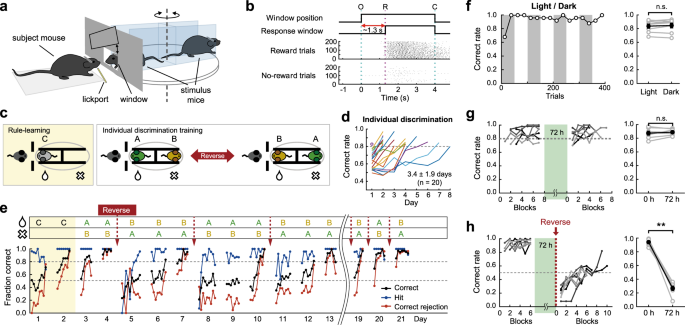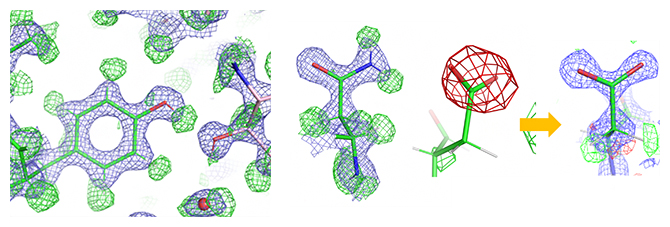2023-06-01 韓国基礎科学研究院(IBS)
◆これまでマウスを用いた研究では、個体認識の神経メカニズムについては限られた知見しか得られていませんでしたが、今回の研究により、海馬のCA1領域が個体認識に重要な役割を果たしていることが明らかになりました。この発見は、社会関係形成における脳の役割を理解し、精神障害の治療法の開発にも役立つ可能性があります。
<関連情報>
- https://www.ibs.re.kr/cop/bbs/BBSMSTR_000000000738/selectBoardArticle.do?nttId=22816&pageIndex=1&searchCnd=&searchWrd=
- https://www.nature.com/articles/s41467-023-38338-3
海馬の社会的アイデンティティと報酬期待の動的かつ安定的な表現が、雄マウスの連想社会記憶を支える Dynamic and stable hippocampal representations of social identity and reward expectation support associative social memory in male mice
Eunji Kong,Kyu-Hee Lee,Jongrok Do,Pilhan Kim & Doyun Lee
Nature Communications Published:05 May 2023
DOI:https://doi.org/10.1038/s41467-023-38338-3

Abstract
Recognizing an individual and retrieving and updating the value information assigned to the individual are fundamental abilities for establishing social relationships. To understand the neural mechanisms underlying the association between social identity and reward value, we developed Go-NoGo social discrimination paradigms that required male subject mice to distinguish between familiar mice based on their individually unique characteristics and associate them with reward availability. We found that mice could discriminate individual conspecifics through a brief nose-to-nose investigation, and this ability depended on the dorsal hippocampus. Two-photon calcium imaging revealed that dorsal CA1 hippocampal neurons represented reward expectation during social, but not non-social tasks, and these activities were maintained over days regardless of the identity of the associated mouse. Furthermore, a dynamically changing subset of hippocampal CA1 neurons discriminated between individual mice with high accuracy. Our findings suggest that the neuronal activities in CA1 provide possible neural substrates for associative social memory.


